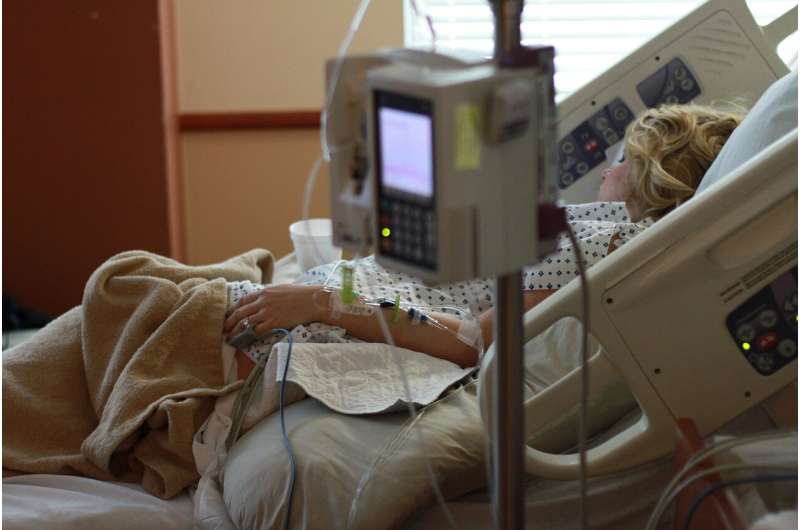
New artificial intelligence (AI) models can help doctors prioritize care by predicting which COVID-19 patients are most at risk of dying or developing kidney injuries during hospitalization.
The sophisticated computer software, developed by researchers at the University of Waterloo, identifies vulnerable patients by learning from previous COVID-19 patient cases with known clinical outcomes.
“There is tremendous potential for predictive AI models like this as they can greatly aid clinicians in identifying who needs help the most, and most urgently, to increase survival rates and reduce rates of serious injury,” said Alexander Wong, a professor of Systems Design Engineering at Waterloo.
The new models are part of an open-source project called COVID-Net that has produced several other innovations since the start of the coronavirus pandemic.
The new AI models work by analyzing clinical and biochemical markers such as serum ferritin levels, use of therapeutic heparin, heart rate and blood pressure, and automatically discovering patterns that are predictive of a patient dying or developing kidney injuries.
Designed using explainable AI technology, the models also explain which indicators they relied on for their predictions, a key requirement to give doctors the confidence to act on the findings.
Explainable AI is a set of tools and frameworks used to help interpret predictions made by machine learning models.
“AI models that provide not just predictions but the rationale behind the predictions can greatly improve trust and widespread adoption to support clinicians in their decision-making processes along the entire clinical workflow,” said Wong, a director of the Vision and Image Processing (VIP) Lab at Waterloo. “That’s the power of explainable AI.”
Researchers collaborated on the models with Dr. Adrian Florea, an emergency medicine physician at CIUSSS de l’Ouest-de-l’Île-de-Montréal, and plan to test them in clinical settings to gain further insights and improve their accuracy.
As with prior research in the COVID-Net project, they have also made their work and results available to researchers and scientists around the world.
“Hospitals are already extremely overburdened by the pandemic, especially with the recent surges due to Omicron and its subvariants and recombinants,” said Wong, a Canada Research Chair in Artificial Intelligence and Medical Imaging. “Having AI models to help healthcare workers identify who needs care in an efficient and effective manner can significantly reduce the burden, as well as the costs of healthcare.”
Researchers expect the models to be easily transferrable to other diseases and conditions, and they are already exploring their use beyond COVID-19.
Hossein Aboutalebi and Maya Pavlova, both students in the VIP Lab, contributed to the project along with doctoral student Andrew Hryniowski and Mohammad Javad Shafiee, also a systems design engineering professor at Waterloo.
University of Waterloo

